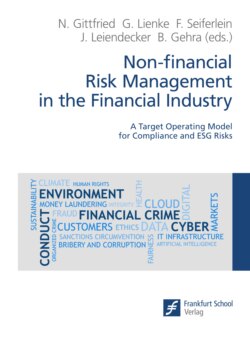Читать книгу Non-financial Risk Management in the Financial Industry - Группа авторов - Страница 73
На сайте Литреса книга снята с продажи.
2.4.2.1 Reputational risk
ОглавлениеReputational risk refers to the potential for negative publicity, public perception or uncontrollable events to have an adverse impact on a company’s reputation, thereby affecting its revenue and market position. In Europe, the EBA defines reputational risk as “the current or prospective risk to the institution’s earnings, own funds or liquidity arising from damage to the institution’s reputation.”[108]
In its guidance on managing outsourcing risk, the FED defines reputational risk as arising when “actions or poor performance of a service provider causes the public to form a negative opinion about a financial institution.”[109] The FDIC defines reputational risk in its guidelines for managing third-party risk as
“the risk arising from negative public opinion. Third-party relationships that result in dissatisfied customers, interactions not consistent with institution policies, inappropriate recommendations, security breaches resulting in the disclosure of customer information, and violations of law and regulation are all examples that could harm the reputation and standing of the financial institution in the community it serves. Also, any negative publicity involving the third party, whether or not the publicity is related to the institution’s use of the third party, could result in reputation risk.”[110]
